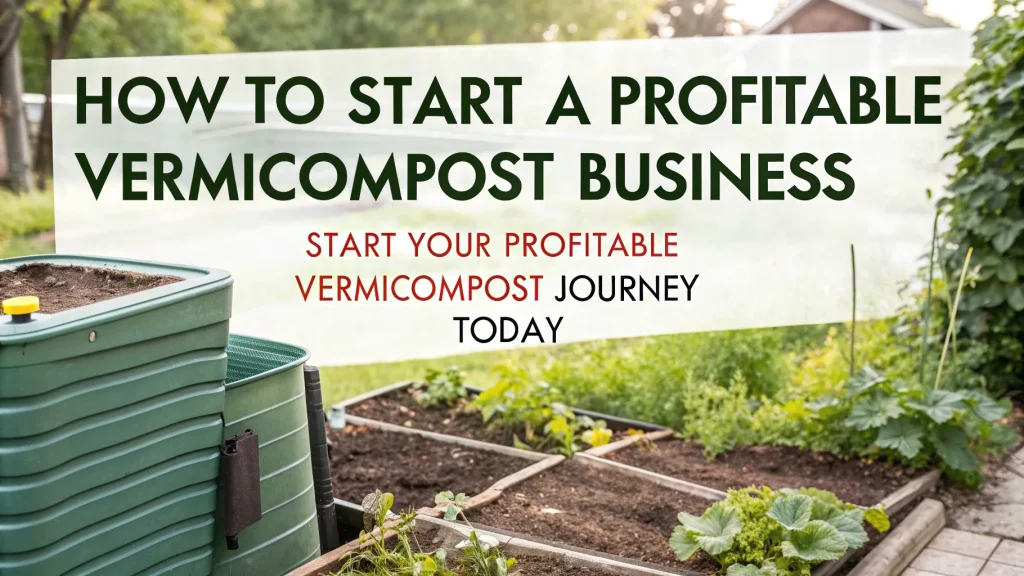Starting a business in the processed food sector can be one of the most profitable and resilient ventures of the modern era. As busy lifestyles and urbanization grow, so does the demand for convenient, ready-to-eat, and long-shelf-life food products. Whether it is packaged snacks, ready meals, frozen foods, or bottled beverages, the processed food business offers immense opportunities for entrepreneurs. However, success in this field requires a thoughtful approach, meticulous planning, and adherence to strict food safety and quality standards.
Why Start a Processed Food Business?
The processed food business is a thriving industry globally, supported by factors such as rising disposable incomes, hectic work routines, increasing demand for on-the-go food products, and growing awareness of hygiene and safety. The processed food market in India alone is expected to grow at a CAGR of 14.6% from 2024 to 2029, reflecting massive potential for new entrants. Beyond profitability, the processed food business can also positively impact local economies by creating jobs, supporting farmers through sourcing raw materials, and improving food supply chains.
If you are planning to establish a processed food business, here is a comprehensive roadmap to help you navigate the journey from idea to execution.
1. Identify Your Processed Food Segment
The term “processed food” covers a wide range of products, from minimally processed items like packaged fruits and vegetables to heavily processed goods such as instant noodles, confectionery, or ready-to-eat curries. You must begin by selecting your niche. This could be:
-
Bakery and confectionery products
-
Packaged snacks (chips, namkeen, energy bars)
-
Canned or bottled beverages
-
Frozen vegetables or ready meals
-
Pickles, sauces, chutneys
-
Dairy products like cheese, yogurt, flavored milk
Your choice should depend on market demand, competition, your budget, and your expertise. Conduct thorough market research to identify gaps in the market, emerging consumer trends, and the potential profitability of your chosen segment.
2. Conduct Market Research and Feasibility Study
Market research is essential to understanding consumer preferences, competitor offerings, and pricing strategies. Use surveys, focus groups, and competitor analysis to gauge the potential of your product. Additionally, conduct a feasibility study to determine production costs, raw material availability, transportation, and potential ROI (return on investment).
For example, if you are interested in launching frozen samosas, you must identify who your target buyers are (households, restaurants, supermarkets), what price points they accept, and which brands are already serving them.
3. Create a Robust Business Plan
A sound business plan is the backbone of a successful processed food business. Your plan should cover:
-
Company description and mission
-
Details of your product range
-
Market analysis and competitive landscape
-
Marketing and sales strategies
-
Operational plan (procurement, production, storage, distribution)
-
Financial projections (cash flow, break-even analysis, funding requirements)
-
Risk management strategies
Having a well-structured business plan will not only guide you during execution but will also help you secure bank loans, investors, or government funding.
4. Legal and Regulatory Compliance
The processed food business must comply with strict food laws to ensure safety and quality. In India, for instance, you need to obtain a Food Safety and Standards Authority of India (FSSAI) license, GST registration, and comply with the Packaging and Labeling Regulations under FSSAI. You may also need local municipal licenses and NOC from the Pollution Control Board, depending on your production scale.
Additionally, if you plan to export, you must adhere to the import regulations of target countries, including certifications like HACCP, ISO 22000, or BRC Global Standards.
5. Set Up Manufacturing Facilities
The heart of your processed food business is your production unit. This could range from a small-scale semi-automatic setup to a fully automated plant, depending on your volume. Your facility must have:
-
Adequate space for processing, packaging, and storage
-
Hygienic conditions with pest control
-
Proper water supply, waste management, and ventilation
-
Cold storage (if applicable)
-
Machinery such as grinders, mixers, ovens, packing machines, and refrigeration units
Hiring skilled staff with knowledge of food production and maintaining a robust standard operating procedure (SOP) is critical to maintaining product quality.
6. Develop and Test Your Product
Before mass production, develop your food recipes and test them thoroughly. Conduct shelf-life studies, taste tests, and microbiological safety tests to ensure your product meets safety and quality expectations. Packaging is another vital element — it should be attractive, informative, and functional to maintain product freshness and comply with legal labeling requirements.
For example, if you manufacture ready-to-eat pasta, your packaging should mention nutritional details, ingredients, allergens, and expiry dates as per FSSAI rules.
7. Branding and Marketing
Branding is crucial in the processed food business because customers often buy based on trust and brand recall. Develop a catchy brand name, design an attractive logo, and craft a compelling brand story. Highlight features like “no preservatives,” “high protein,” “organic,” or “authentic homemade taste” depending on your product’s USP.
Marketing channels for a processed food business may include:
-
Social media marketing
-
Food exhibitions and trade fairs
-
Influencer partnerships
-
Local retail tie-ups
-
Sampling campaigns in high-traffic areas
You can also consider e-commerce platforms such as Amazon, BigBasket, or your own website to reach a wider audience.
8. Distribution Channels
An efficient distribution network is the lifeline of a successful processed food business. Depending on your product type and target market, you may sell through:
-
Modern retail chains
-
Local kirana stores
-
Wholesalers and distributors
-
Online marketplaces
-
HoReCa (hotels, restaurants, cafes) sector
You must ensure your products are always fresh and readily available by investing in reliable cold chain logistics or warehousing facilities, especially for frozen and perishable items.
9. Maintain Quality and Compliance
Even after launch, your processed food business must consistently monitor product quality and compliance. Conduct regular audits, get feedback from customers, and maintain a system for recalls if any issue arises. Investing in continuous improvement, employee training, and quality certifications will enhance your credibility and market share.
10. Scale and Innovate
Once your processed food business achieves stability, consider scaling up by:
-
Launching new product variants
-
Expanding to new cities or states
-
Adding healthier or organic options
-
Exploring exports to international markets
Innovation is critical in the food sector to stay ahead of competitors. Keep an eye on global food trends like plant-based foods, low-sugar snacks, or eco-friendly packaging to refresh your offerings.
11. Financial Considerations
You will need to estimate initial capital investment carefully, including:
-
Equipment and machinery costs
-
Land and building rental
-
Licenses and certifications
-
Working capital for raw material purchases
-
Salaries and marketing expenses
Various government schemes like the PMFME (Pradhan Mantri Formalisation of Micro Food Processing Enterprises) can help you secure subsidies and soft loans for your processed food business. Banks and venture capital firms also actively invest in promising food startups.
12. Sustainability in Processed Food
Modern consumers increasingly demand sustainable practices. You can incorporate sustainability into your processed food business by:
-
Using eco-friendly packaging
-
Sourcing local raw materials
-
Reducing food waste by recycling
-
Investing in energy-efficient equipment
-
Educating customers about responsible consumption
Sustainability is no longer just a buzzword; it can also improve your brand reputation and appeal to environmentally conscious consumers.
13. Overcoming Challenges
Like any business, the processed food business has its share of challenges, including:
-
High competition from established brands
-
Volatile raw material prices
-
Strict regulatory hurdles
-
Changing consumer tastes
You can overcome these by staying agile, maintaining excellent quality, and continuously listening to customer feedback. Building strong supplier relationships and investing in research and development will also give you a competitive edge.
14. Future Outlook of Processed Food Business
The processed food business will continue to grow in the coming decade thanks to urbanization, rising incomes, and greater preference for convenience. Emerging technologies like food fortification, 3D food printing, and blockchain for food traceability are expected to revolutionize this sector. Entrepreneurs who focus on quality, innovation, and sustainability will find abundant opportunities in the years ahead.
Conclusion
Starting a processed food business is a journey that combines culinary creativity, scientific rigor, and entrepreneurial drive. From picking your niche and complying with safety regulations to building a strong brand and distribution network, every step requires focus and dedication. But if you get it right, the processed food business can deliver tremendous financial and social rewards. Whether you’re passionate about launching healthy snacks, gourmet ready meals, or traditional pickles with a modern twist, the possibilities are endless. With determination and careful planning, your processed food business can make a lasting mark on this ever-growing industry.
Visit the page Select and Choose the Right Business Startup for You for sorting out the questions arising in your mind before starting any business and know which start-up you can plan.
We, at NPCS, endeavor to make business selection a simple and convenient step for any entrepreneur/startup. Our expert team, by capitalizing on its dexterity and decade’s long experience in the field, has created a list of profitable ventures for entrepreneurs who wish to diversify or venture. The list so mentioned is updated regularly to give you a regular dose of new emerging opportunities.





